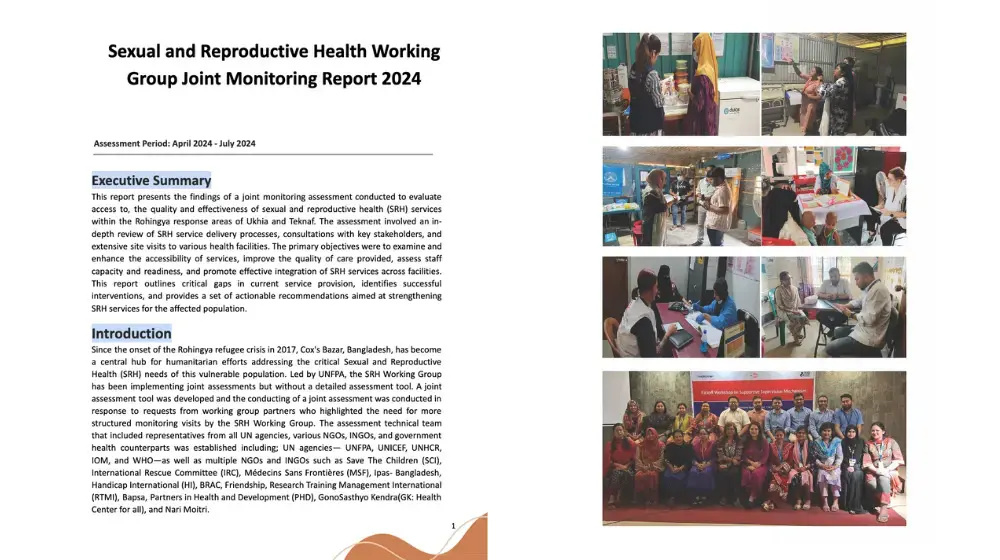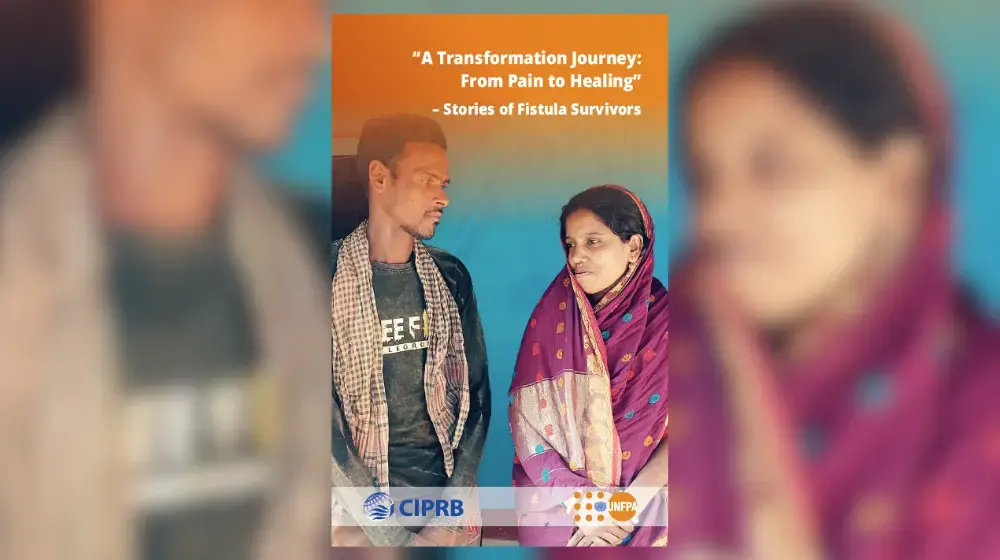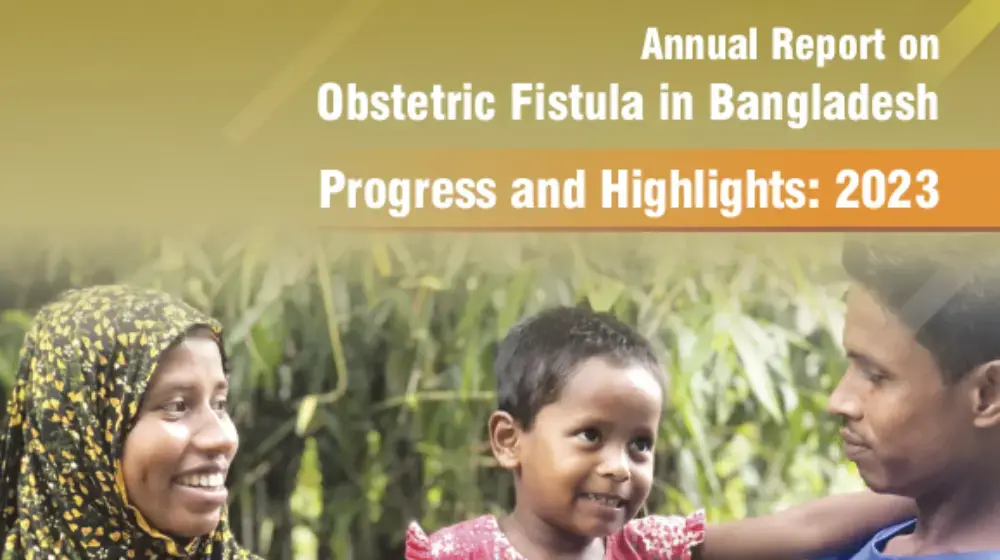In Bangladesh, thousands of women suffer from vesicovaginal fistula (VVF), a debilitating condition caused by prolonged obstructed labor. Moyna Bibi, a 37-year-old woman with a loving family, embarked on a challenging journey to overcome the physical and emotional toll of VVF. Her story sheds light on the struggles faced by women affected by this condition and the hope they find in organizations like UNFPA Bangladesh and LAMB Hospital.
In Moyna's words -
Suddenly I began experiencing discomfort in my uterus, prompting me to seek medical assistance from a local doctor. Unfortunately, the prescribed medication failed to improve my condition, and my health continued to deteriorate. Determined to find a solution, my husband took me to Rajshahi Sadar in search of a clinic for further examination. After a series of tests, a doctor diagnosed me with a vesicovaginal fistula and recommended surgical intervention. I consented, hoping for a return to a comfortable and pain-free life.
Moyna's hope was short-lived as her health failed to improve following the surgery. Confused and frustrated, she reached out to her doctor, expressing her concerns. The doctor assured her that regular medication would resolve the issues, but Moyna continued to suffer from continuous urine flow and a sense of helplessness.
Months passed, and I received devastating news from my doctor. I was informed that I needed yet another surgery to repair the vesicovaginal fistula that had persisted despite previous attempts. Weighed down by multiple failed surgeries, I felt broken and hopeless. However, my family's unwavering support and the encouraging words of a fellow patient who had successfully recovered from VVF treatment at LAMB Hospital rekindled a glimmer of hope within me. - Moyna grieves.
However, refusing to give up, Moyna consulted a gynaecologist who diagnosed her with VVF and referred her to LAMB Hospital—an implementing partner of UNFPA Bangladesh, specializing in fistula treatment.
Moyna underwent a successful surgery at LAMB Hospital, marking the turning point in her journey. She spent 16 days in the hospital, receiving comprehensive post-operative care and support. Expressing her gratitude, she acknowledged the excellent treatment she received at the Hospital, emphasizing her disbelief that it was provided free of charge. With a renewed sense of hope, she was finally discharged and prepared to embark on a new chapter in her life.
Moyna's journey serves as a testament to the struggles faced by vesicovaginal fistula patients in Bangladesh. Through the efforts of UNFPA and the expertise of our medical institutions such as LAMB Hospital, hope is restored, and lives are transformed. The commitment to ensuring sexual and reproductive health for all women remains our paramount goal, and Moyna's triumph over adversity exemplifies the importance of such efforts.
To our VVF fighters, we admire your unyielding spirit and determination. Your story is one of endurance and hope. UNFPA is working with the government of Bangladesh and IPS to identify fistula patients and support their treatment. Ensuring sexual and reproductive health for all girls and women is our commitment and we promise to walk with you every step of the way.





